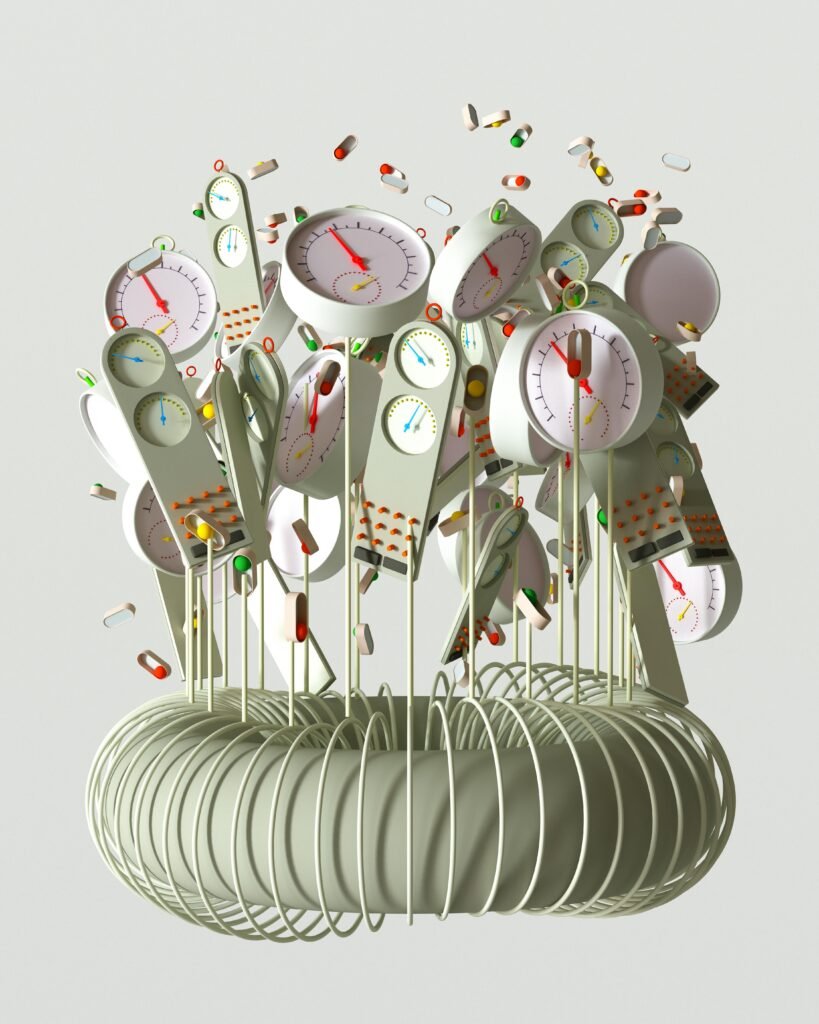Imagine feeling consistently tired and drained, with seemingly no amount of rest able to revitalize you. The thought of finding a solution to boost your energy may leave you feeling both skeptical and hopeful. Well, here’s some good news: there is a possibility that certain vitamins or supplements may hold the key to unlocking your energy potential. In this article, we will explore the potential benefits of these vitamins and supplements, and how they might just be the missing pieces to your energy puzzle. So, grab a cup of tea and get ready to discover the power of vitamins in fueling your body and mind.
Exploring the Relationship Between Vitamins and Energy
Understanding the Concept of Energy
Energy is the fuel that keeps us going throughout the day. It is the force that allows us to perform various physical and mental activities. From the moment we wake up in the morning to the time we go to bed at night, our bodies constantly require energy to function optimally. But have you ever wondered where this energy comes from?
Explaining the Role of Vitamins in the Body’s Energy Production
Vitamins play a crucial role in our body’s energy production. They are organic compounds that are essential for the normal functioning of our cells, tissues, and organs. While vitamins do not directly provide energy, they are involved in key metabolic processes that convert the food we eat into usable energy. Without adequate levels of vitamins, our bodies may not be able to efficiently produce the energy we need to perform daily activities.
1. Vitamins for Boosting Energy Levels
Vitamin B12
Vitamin B12 is often referred to as the “energy vitamin.” It plays a vital role in the production of red blood cells, which transport oxygen to our cells and tissues. Without sufficient levels of vitamin B12, our bodies may experience fatigue, weakness, and a lack of energy. Therefore, ensuring an adequate intake of vitamin B12 is essential for maintaining optimal energy levels.
Vitamin D
Vitamin D is known for its role in bone health, but it also plays a significant role in energy production. It helps regulate the levels of calcium and phosphate in our bodies, which are essential for proper muscle function. In addition, vitamin D deficiency has been linked to fatigue and low energy levels. Therefore, getting enough vitamin D is important for maintaining optimal energy.
Iron
Iron is a crucial mineral that is required for the production of hemoglobin, a protein in red blood cells that carries oxygen throughout the body. Without enough iron, our cells may not receive the oxygen they need, leading to fatigue and low energy levels. It is especially important for women to ensure an adequate intake of iron, as they are at a higher risk of iron deficiency due to menstruation.
Coenzyme Q10
Coenzyme Q10, also known as CoQ10, is a compound that is involved in the production of adenosine triphosphate (ATP), which is the primary source of energy for our cells. CoQ10 also acts as an antioxidant, protecting our cells from damage caused by free radicals. While our bodies can produce CoQ10, levels naturally decline with age. Supplementing with CoQ10 may help support energy production and overall vitality.

2. Evaluating the Benefits of Vitamin B12
The Importance of Vitamin B12 for Energy
Vitamin B12 is essential for maintaining optimal energy levels. It plays a key role in the production of red blood cells, which are responsible for transporting oxygen throughout the body. Without adequate vitamin B12, oxygen delivery to our cells may be compromised, leading to fatigue and a lack of energy. Therefore, ensuring an adequate intake of vitamin B12 is crucial for supporting overall energy levels.
Sources of Vitamin B12
Vitamin B12 is primarily found in animal-based foods, such as meat, fish, dairy products, and eggs. For individuals following a vegetarian or vegan diet, plant-based sources of vitamin B12 include fortified cereals, nutritional yeast, and certain types of algae. It is important to note that vitamin B12 is not naturally present in plant foods, so it is crucial for vegetarians and vegans to ensure they are getting enough through fortified sources or supplements.
Recommended Daily Intake
The recommended daily intake of vitamin B12 varies based on age, sex, and life stage. Generally, adults are advised to consume 2.4 micrograms (mcg) of vitamin B12 per day. However, individuals with certain medical conditions or dietary restrictions may require higher doses or supplementation. It is recommended to consult with a healthcare professional to determine the appropriate dosage for your specific needs.
Potential Side Effects
Vitamin B12 is generally considered safe when taken within the recommended dosage range. However, high doses of vitamin B12 supplementation may occasionally cause mild side effects such as diarrhea or skin rash. It is important to follow the recommended dosage guidelines and consult with a healthcare professional if you experience any adverse effects.
3. Analyzing the Impact of Vitamin D on Energy Levels
Vitamin D and Its Effects on Energy
vitamin D plays a crucial role in various aspects of our health, including energy production. It helps regulate calcium and phosphate levels in the body, which are essential for muscle function and overall energy metabolism. Low levels of vitamin D have been associated with fatigue and low energy levels. Therefore, maintaining adequate vitamin D levels is important for supporting optimal energy.
Natural Sources of Vitamin D
One of the primary sources of vitamin D is sunlight. When our skin is exposed to sunlight, it synthesizes vitamin D naturally. However, during the winter months or for individuals living in regions with limited sunlight, it may be challenging to obtain enough vitamin D solely from sunlight. Other natural sources of vitamin D include fatty fish like salmon and mackerel, fortified dairy products, and egg yolks.
Recommended Daily Intake
The recommended daily intake of vitamin D varies depending on age, sex, and other factors. Generally, adults are advised to consume at least 600 international units (IU) of vitamin D per day. However, individuals with certain medical conditions or those with limited sun exposure may require higher doses. It is always best to consult with a healthcare professional to determine the appropriate dosage for your individual needs.
Possible Side Effects
Vitamin D is generally safe when taken within the recommended dosage range. However, excessively high doses of vitamin D can lead to vitamin D toxicity, which may cause symptoms like nausea, vomiting, and weakness. It is important to follow the recommended dosage guidelines and consult with a healthcare professional if you have any concerns or experience any adverse effects.

4. Iron: A Crucial Mineral for Energy Production
The Role of Iron in Energy Metabolism
Iron is an essential mineral that plays a vital role in energy metabolism. It is a key component of hemoglobin, the protein in red blood cells responsible for carrying oxygen from the lungs to the rest of the body. Without enough iron, our cells may not receive adequate oxygen, leading to fatigue and low energy levels. Iron is also involved in other cellular processes related to energy production.
Food Sources Rich in Iron
Iron can be obtained from both animal and plant sources. Animal-based sources of iron include red meat, poultry, seafood, and organ meats. Plant-based sources of iron include legumes, tofu, dark leafy greens (such as spinach and kale), fortified cereals, and nuts and seeds. It is important to note that the bioavailability of iron from plant sources is generally lower than from animal sources, so individuals following a vegetarian or vegan diet may need to ensure adequate intake or consider supplementation.
Recommended Daily Intake
The recommended daily intake of iron varies depending on age, sex, and life stage. For adults, the recommended daily intake is 8-18 milligrams (mg) per day, depending on gender. Women of childbearing age, especially those with heavy menstrual bleeding, may require higher amounts of iron. It is advisable to consult with a healthcare professional to determine the appropriate dosage for your specific needs.
Potential Side Effects
Iron supplementation is generally safe when taken as recommended. However, high doses of iron can cause gastrointestinal side effects such as constipation, nausea, and stomach pain. In some cases, iron supplementation may also lead to iron overload, especially in individuals with certain medical conditions. To ensure safety, it is always best to consult with a healthcare professional before starting any iron supplementation.
5. Understanding the Effects of Coenzyme Q10 on Energy
Coenzyme Q10 and Its Relationship to Energy
Coenzyme Q10 (CoQ10) is a compound that is naturally produced by the body and is involved in energy production at the cellular level. It is a component of the mitochondria, which are known as the “powerhouses” of the cells. CoQ10 plays a key role in the production of adenosine triphosphate (ATP), which is the primary source of energy for our cells. As we age, the levels of CoQ10 in our bodies naturally decline, potentially affecting energy production.
Natural Sources of Coenzyme Q10
While our bodies can produce CoQ10, it can also be obtained from dietary sources. Foods rich in CoQ10 include organ meats (such as liver and heart), fatty fish (such as salmon and sardines), nuts and seeds, and certain oils (such as soybean and canola oil). However, it is important to note that the amount of CoQ10 obtained from dietary sources may not be sufficient to achieve optimal levels. In such cases, supplementation may be considered.
Recommended Daily Intake
The recommended daily intake of CoQ10 is currently not established. The optimal dosage may vary depending on individual needs and health conditions. It is advisable to consult with a healthcare professional to determine the appropriate dosage and form (such as ubiquinone or ubiquinol) of CoQ10 for your specific needs.
Possible Side Effects
CoQ10 is generally well-tolerated and few side effects have been reported. However, some individuals may experience mild gastrointestinal symptoms or allergic reactions. It is always best to consult with a healthcare professional before starting any new supplement to ensure safety and determine the appropriate dosage.

6. Examining Other Potential Energy-Boosting Supplements
While vitamins and minerals play a crucial role in energy production, there are other supplements that may also have energy-boosting effects. These supplements include creatine, ashwagandha, ginseng, and caffeine. Let’s take a closer look at each of these supplements and their potential impact on energy levels.
Creatine
Creatine is a naturally occurring compound found in small amounts in certain foods, such as meat and fish. It is involved in the production of ATP, the primary source of energy for muscle contractions. Supplementing with creatine has been shown to improve exercise performance and increase muscle strength and power. While its direct effects on overall energy levels may vary, creatine may enhance energy during physical activities.
Ashwagandha
Ashwagandha is an adaptogenic herb that has been used for centuries in traditional Ayurvedic medicine to increase energy, reduce stress, and enhance vitality. It is believed to work by balancing the body’s stress response and supporting overall well-being. While research on ashwagandha’s specific effects on energy is still limited, some studies suggest that it may help reduce fatigue and improve overall energy levels.
Ginseng
Ginseng is a popular herbal remedy known for its potential energy-boosting effects. It is believed to work by improving blood circulation, reducing inflammation, and supporting overall vitality. Ginseng has been used traditionally to combat fatigue and enhance energy levels. While more research is needed to fully understand the mechanisms behind its energy-boosting effects, some studies suggest that ginseng may improve mental and physical performance.
Caffeine
Caffeine is perhaps the most well-known natural energy booster. It is found in various beverages, such as coffee, tea, and energy drinks. Caffeine works by stimulating the central nervous system, increasing alertness and reducing feelings of fatigue. It is often used to combat drowsiness and improve focus and concentration. However, it is important to consume caffeine in moderation, as excessive intake can lead to side effects such as jitteriness, increased heart rate, and disrupted sleep patterns.
7. The Role of Creatine in Enhancing Energy
How Creatine Affects Energy Levels
Creatine is a compound that is naturally synthesized in the body and stored in the muscles as phosphocreatine. During intense exercise or physical activity, the stored phosphocreatine is rapidly converted into ATP, providing a quick source of energy for muscle contractions. Supplementing with creatine can increase the muscle’s phosphocreatine stores, allowing for increased ATP production and improved energy availability during exercise.
Recommended Dosage
The recommended dosage for creatine supplementation varies depending on individual needs and goals. A common loading phase involves taking around 20 grams of creatine per day for 5-7 days, followed by a maintenance phase of 3-5 grams per day. It is important to follow the recommended dosage guidelines and consult with a healthcare professional before starting any creatine supplementation.
Potential Side Effects
Creatine is generally safe when taken as recommended. However, some individuals may experience gastrointestinal side effects such as stomach cramps, bloating, or diarrhea. It is also important to stay adequately hydrated while taking creatine, as it can cause water retention in the muscles. Additionally, individuals with preexisting kidney or liver conditions should avoid creatine supplementation or consult with a healthcare professional before starting.
8. Ashwagandha: An Adaptogenic Herb for Energy Support
Ashwagandha and Its Impact on Energy
Ashwagandha is an adaptogenic herb that has been used for centuries in traditional Ayurvedic medicine to support overall energy and vitality. It is believed to work by modulating the body’s stress response and promoting a sense of calm and well-being. While research on ashwagandha’s precise mechanisms of action is ongoing, some studies suggest that it may help reduce fatigue and improve mental and physical performance.
Optimal Dosage of Ashwagandha
The optimal dosage of ashwagandha may vary depending on the desired effects and individual needs. In clinical studies, doses ranging from 250-600 milligrams (mg) of ashwagandha extract per day have been used. It is important to note that individual responses to ashwagandha may vary, so it is advisable to start with a lower dosage and gradually increase if needed. As always, consulting with a healthcare professional is recommended to determine the appropriate dosage for your specific needs.
Possible Side Effects
Ashwagandha is generally well-tolerated, and few side effects have been reported. However, some individuals may experience mild gastrointestinal symptoms or allergic reactions. As with any dietary supplement, it is best to consult with a healthcare professional before starting ashwagandha supplementation, especially if you are taking any medications or have any underlying medical conditions.
10. Caffeine: The Natural Energy Booster
How Caffeine Enhances Energy
Caffeine is a natural stimulant that works by blocking adenosine receptors in the brain, which helps to increase alertness and reduce feelings of fatigue. It stimulates the central nervous system, promoting the release of neurotransmitters like dopamine and norepinephrine, which can improve mood, cognitive function, and physical performance. The effects of caffeine on energy levels can be felt within minutes of consumption and can last for several hours.
Moderate Caffeine Consumption
While caffeine can provide a temporary energy boost, it is important to consume it in moderation. The recommended daily intake of caffeine for most adults is 400 milligrams (mg), which is roughly equivalent to about four cups of brewed coffee. However, individual tolerance to caffeine can vary, and some people may be more sensitive to its effects. It is advisable to monitor your caffeine intake and be mindful of its potential impact on sleep quality and overall well-being.
Potential Side Effects
While caffeine is generally safe when consumed in moderation, excessive intake can lead to side effects such as jitteriness, increased heart rate, and disrupted sleep patterns. Some individuals may also experience gastrointestinal symptoms, headaches, or anxiety. It is important to be aware of your own sensitivity to caffeine and to adjust your intake accordingly. If you have any underlying health conditions or are taking medications, it is always best to consult with a healthcare professional before consuming caffeine.
Losing weight and keeping it off can be a challenge. I’m here to show you good-tasting foods and drinks that help you lose weight, and are enjoyable to eat.




